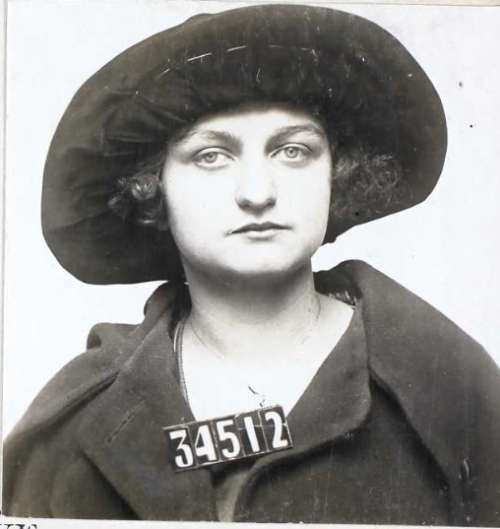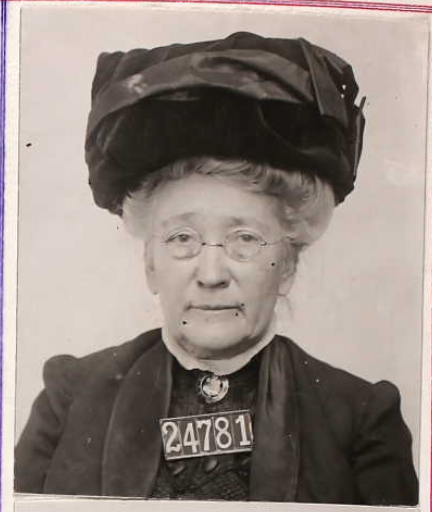I, Like Renfield, Show Up To My Therapist Refusing To Talk About Anything But My Undying Love For Dracula.
I, like Renfield, show up to my therapist refusing to talk about anything but my undying love for Dracula.
More Posts from Springloadedcoffin and Others
dorian to basil: draw me like of your french boys
Haymitch and Peeta happily in love with girls who can sing:
Snow:










Female inmates of San Quentin State Prison and their very fine hats. 6/?.
Quincey motivating the group on their way to Transylvania

Are u going to/is there already a way to access your transcriptions of those letters with Rachel/rat, Jack, will, & co? I love them so
I would love to eventually, but it would be a huge undertaking and I would probably have to make a separate website for it. There are over 1000 letters, and my first draft transcription (which I still need to proofread) is over 1200 pages typed single space.
I'm so glad you're enjoying them!
I love when Star Trek throws an incredibly traumatic back story at one of their characters, and then we just never mention it in any other episodes ever again. Like yeah, Kirk went through a genocide and mass famine crisis when he was a child. Well, anyways, let's talk about something else now.
haymitch saying “I don’t drink” hahaha so funny I have a gun in my mouth
Hrrm, on the one hand versions of Dracula, Frankenstein etc that deviate from the source in egregious ways can bug the heck out of me (such as Dracula Untold, which while trying to create a superhero origin for Dracula somehow whitewashes the actions of the historical Vlad the Impaler to do so… Or Dracula 2000, which while having some good ideas kinda tripped over its own feet by saying that Dracula is literally Judas from the Bible, hence his adversion to Christian imagery and silver)…
…But on the other hand, using public domain stories as a source of material to take and remix in interesting ways is fun, and it’s interesting to come up with extended versions of stories from elements that were hinted or referenced in the original story but weren’t elaborated on because they weren’t the focus.
Such as…
- Mina’s journey across Europe to visit Jonathan in the nunnery he’s recovering from after escaping Dracula’s castle.
- Van Helsing’s dead son and his wife who is in a mental institution.
- What Elizabeth Lavenza and Justine Moritz were up to in the literal years Victor Frankenstein was away at university creating life.
- What reaction did Elizabeth, Henry etc. have to Victor’s actions if they ever actually found out about it, he’s explicitly an unreliable narrator, and a self-obsessed one at that, so we aren’t really aware of what he knows.
- What happened to those kids Lucy was eating after being turned into a vampire? What would a story be like from their perspective, dealing with the horrors of being a poor kid in Victorian London and then literal monsters start coming to get you?
- Dracula mentions being related to Attila the Hun, a historical figure who notably bled to death on his wedding night. While Dracua’s implictly plans of conquest certainly could be read as him trying to emulate his ancestor (just as Attila attacked Rome, Dracula attacks London), it could be interesting to tie things into Atilla’s wife (who IRL may have poisoned him) being a vampire maybe? Food for thought.
- What happened in between the death of Elizabeth and Victor’s pursuit of the Monster into the Arctic? Did they attempt to revive her using the techniques he knew worked (like in the Kenneth Branagh movie)? If so what was her reaction to it?
- In Doctor Jekyll and Mr Hyde, it was implied that an unknown impurity in his chemicals enabled him to bring about the change in appearance. Was this the same chemical impurity responsible for the personality change in a character in the Arthur Machen story The Novel of the White Powder (although he ends up melting while transforming into something evil)?
- What did Dorian Gray do while travelling around the world being hedonistic for an several years long stretch in his book? Could you make a story about people interacting with his strange but unsettlingly hot British kid that seems to suck people into his orbit and promptly destroy them? What would happen if he were to meet Dr Polidori’s Lord Ruthven, a character who predates Dracula and notably exact in a similarly destructive manner to Dorian when it comes to folks that he takes an “interest” in.
- Ruthven doesn’t actually die at the end of his story, and he escapes to continue “ruining“ and eating people. He could conceivably show up in a story where he meets Dracula or Carmilla, with his more free-wheeling, hedonistic approach to vampirism constrasting with Dracula’s interests in sorcery and domination and Carmilla’s whole deal. …That actually could have legs, with a vampire from the 1700s interacting with vampires from the 1600s and 1400s respectively, with all three instantly loathing each other.

The cruelty of racist white men.
Gavin: Alot of people tend to ask me, "Gavin, I don't like you"
-
 c1own-kid liked this · 3 months ago
c1own-kid liked this · 3 months ago -
 rosquinn liked this · 1 year ago
rosquinn liked this · 1 year ago -
 stjohnstarling liked this · 1 year ago
stjohnstarling liked this · 1 year ago -
 okrii liked this · 1 year ago
okrii liked this · 1 year ago -
 argyleheir reblogged this · 1 year ago
argyleheir reblogged this · 1 year ago -
 argyleheir liked this · 1 year ago
argyleheir liked this · 1 year ago -
 katy-perry-vevo liked this · 1 year ago
katy-perry-vevo liked this · 1 year ago -
 pantocatcher reblogged this · 1 year ago
pantocatcher reblogged this · 1 year ago -
 pantocatcher liked this · 1 year ago
pantocatcher liked this · 1 year ago -
 jamie-the-scene-kid liked this · 1 year ago
jamie-the-scene-kid liked this · 1 year ago -
 leatherfaceologist liked this · 1 year ago
leatherfaceologist liked this · 1 year ago -
 anyikis liked this · 1 year ago
anyikis liked this · 1 year ago -
 clearcatastrophe liked this · 1 year ago
clearcatastrophe liked this · 1 year ago -
 beneaththefloorboards reblogged this · 1 year ago
beneaththefloorboards reblogged this · 1 year ago -
 beneaththefloorboards liked this · 1 year ago
beneaththefloorboards liked this · 1 year ago -
 gurngle liked this · 1 year ago
gurngle liked this · 1 year ago -
 pirateflagmingo reblogged this · 1 year ago
pirateflagmingo reblogged this · 1 year ago -
 pirateflagmingo liked this · 1 year ago
pirateflagmingo liked this · 1 year ago -
 sableyes-eyes reblogged this · 1 year ago
sableyes-eyes reblogged this · 1 year ago -
 copia-enjoyer liked this · 1 year ago
copia-enjoyer liked this · 1 year ago -
 coraltheoristcloud liked this · 1 year ago
coraltheoristcloud liked this · 1 year ago -
 wetcatboyobsession reblogged this · 1 year ago
wetcatboyobsession reblogged this · 1 year ago -
 wetcatboyobsession liked this · 1 year ago
wetcatboyobsession liked this · 1 year ago -
 ushanka-kid liked this · 1 year ago
ushanka-kid liked this · 1 year ago -
 sterf17 liked this · 1 year ago
sterf17 liked this · 1 year ago -
 sampersander reblogged this · 1 year ago
sampersander reblogged this · 1 year ago -
 sampersander liked this · 1 year ago
sampersander liked this · 1 year ago -
 mentallyillfaggot liked this · 1 year ago
mentallyillfaggot liked this · 1 year ago -
 sundriedcorpse liked this · 1 year ago
sundriedcorpse liked this · 1 year ago -
 drauburnstache liked this · 1 year ago
drauburnstache liked this · 1 year ago -
 sprinklysparkle liked this · 1 year ago
sprinklysparkle liked this · 1 year ago -
 archivedible reblogged this · 1 year ago
archivedible reblogged this · 1 year ago -
 justamusedmusings liked this · 1 year ago
justamusedmusings liked this · 1 year ago -
 thewitchofstjohns liked this · 1 year ago
thewitchofstjohns liked this · 1 year ago -
 sweetieplague reblogged this · 1 year ago
sweetieplague reblogged this · 1 year ago -
 sweetieplague liked this · 1 year ago
sweetieplague liked this · 1 year ago -
 ducklover1997 liked this · 1 year ago
ducklover1997 liked this · 1 year ago -
 poetic-poltergeist reblogged this · 1 year ago
poetic-poltergeist reblogged this · 1 year ago -
 pheonixfidelity reblogged this · 2 years ago
pheonixfidelity reblogged this · 2 years ago -
 pheonixfidelity liked this · 2 years ago
pheonixfidelity liked this · 2 years ago -
 kasamatsu-senpai liked this · 2 years ago
kasamatsu-senpai liked this · 2 years ago -
 thementallyunstablesimp liked this · 2 years ago
thementallyunstablesimp liked this · 2 years ago -
 milso liked this · 2 years ago
milso liked this · 2 years ago
